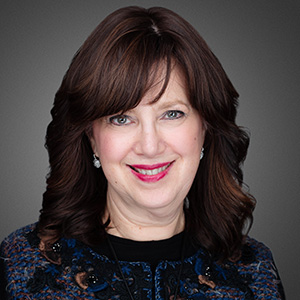Kings and Queens


Such is the power of kavod,Kings and Queens ,Such is the power of kavod
O n Rosh Hashanah we attend a coronation and crown Hashem our King. “Ein melech b’lo am — there is no king without a people.” The meaningfulness of being king increases with the number of subjects the king has. So when we crown the King of Kings we affect the cosmos in a way that nothing else in the universe can.
Yet there is a different coronation of sorts that affects our existence not only in this world but in the World to Come as well. Our Sages teach us that when a person comes to the World of Truth he will be asked several questions. They won’t be multiple choice and guessing won’t help. Besides being asked if we made Torah a real priority how honest our business dealings were and whether we truly yearned for the redemption we will be asked “Himlachta es chavercha alecha b’nachas ruach? Did you make your friend king over you with satisfaction?” (Reishis Chochmah Shaar Hayirah ch. 12)
How and why would I make my friend king over me? If I had a king staying in my home and he told me to set the thermostat at 72 degrees while I his lowly subject want it set at 70 well you know how that turns out. Seriously I can understand that a king’s wishes take priority but why should I relate to my friend or my spouse like that? Aren’t we peers?
Rav Wolbe explains that making a friend king really means asking whether we are giving those we interact with sufficient honor. In every way we would relate to a human king there is a corollary to the way we should relate to our friends and spouses. Rambam in Laws of Kings teaches that the great honor due to a king manifests in our not riding on his horse sitting in his chair or using any of his personal items. We cannot see him unclothed or watch him receive a haircut. And of course we must speak respectfully to the king measuring our words so as not to waste his time. (After all he has a kingdom to run!) We can infer from these halachos that we should be careful with our friends’ privacy property and time; and that we should avoid looking at our friends or spouses when they are in a compromised situation.
While the laws of honoring a king are explicit the laws of honoring our friends and spouses are less clear. We are taught the negatives: Don’t embarrass don’t utter hurtful words don’t lie. Yet the way we need to be proactive in honoring those close to us is not as specific.
Seeing the Eternal Self
Rav Wolbe explains that giving honor involves developing an internal compass that allows us to perceive our own internal qualities. That in turn will give us the ability to see someone else’s internal qualities. We want our vision to go to the place of kavod inside another person to her deeper more spiritual — and therefore more eternal — self. Since each person is unique there can’t be one formula for giving kavod to another person. It requires creativity and effort. It requires you to see past the outside sometimes past less-than-perfect behavior to the essence of the person.
I was recently away over Shabbos and I went to the local shul hurrying in to catch what I knew would be a quick service. The lobby of the shul was empty except for an elderly gentleman in a wheelchair and his aide. I walked by turning toward him to say good Shabbos but hardly slowing my pace. He nodded and I noted that he did not look well. I had almost entered the sanctuary when he called out loudly “Are you Jewish?” I answered in the affirmative. “Are you sure?” he countered.
I gave up hope of davening in shul hoping the One Above agreed with my calculation that it was more important to show respect to an old man who clearly wanted to talk and I crossed the lobby to where he was sitting. I smiled and we started to speak. Though his speech was heavy and slow in coming the words (I confess to my surprise) made sense. It turns out we shared some acquaintances and Mr. Schwartz knew my father a”h. After ten minutes I took leave. With a smile Mr. Schwartz repeated my name to make sure he remembered it. Back home I met one of our mutual acquaintances and mentioned that I had a nice conversation with Mr. Schwartz. She looked at me quizzically. “Such a fine person it’s so sad that he hasn’t been with it for years.”
Giving Mr. Schwartz kavod in that situation simply meant seeing him as a person who has lived a full life and has much to offer rather than seeing an elderly man slumped in a wheelchair to be passed by with a perfunctory nod.
The Power of Kavod
Giving proper honor requires us to be present and patient enough to focus on the uniqueness of those we encounter. There is no one-size-fits-all recipe. The proper response makes that individual feel choshuv that they matter and that their existence truly makes a difference. It should leave them feeling just a bit taller with a smile and a bounce in their step.
I recently related a story to a group of women. In the early years of Yeshiva Sh’or Yoshuv Bob Dylan of rock-and-roll fame hero to many in his time came to visit Rav Shlomo Freifeld ztz”l. The two men shared dinner and a long discussion at the Rav’s home. The yeshivah boys were salivating to hear what had transpired between the two.
The next morning one of the yeshivah students couldn’t contain his curiosity and approached his rebbi. “Please tell me something he said ” he asked.
“Dovid ” Rabbi Freifeld said “I want to tell you something. You are in better shape than Bob Dylan. You have dreams and you know where you are going in life. He doesn’t.”
It’s no surprise that Dovid still tells this story more than 40 years later.
A woman in the room spoke up. “I was studying in Rebbetzen Freifeld’s seminary then and we were also curious about what happened. Shortly afterward we were having a class in the Freifelds’ home and the Rav turned to me and said ‘That chair that you are sitting in is the one that Bob Dylan sat in.’ As I sat there in wonder he added ‘And I want to tell you that you made an important decision in your life that he was not able to make.’ ”
Different words for each tailored to the individual. One honored for their vision one honored for their choices. Each is true to those words until today. Such is the power of kavod.
Just One Untarnished Point
Sometimes we find ourselves in a position where we have to give kavod we don’t feel is warranted. Rav Reuven Leuchter notes that on Rosh Hashanah we are judged according to where we are at that point (Rabbeinu Chananel). Hashem is looking for that one point within us that is whole unsullied. That is the point that interests Him in us and that is the point from which He can build our world and bring us all that we need. In the Rosh Hashanah davening we say that Hashem remembered Noach. Hashem looked over the whole world and found nothing worth His interest as it had become a distorted version of what He created. Yet there was one man Noach who was untainted and from him Hashem built a world.
So it is when we deal with those nearest and dearest to us. We know their flaws shortcomings and their mistakes. It is easy to see that as an excuse to belittle rather than honor. To build our connection to them and thereby be able to show them kavod we need to look for that one point deep within them that is untarnished. From that place we can build an entire person.
On this Rosh Hashanah Hashem is looking us over as only He can. Let us understand that making Him our King includes making His children king over us as well. In that zechus may we all merit a kesivah v’chasimah tovah.
Originally featured in Family First Issue 560. Debbie Greenblatt is a senior lecturer for the Gateways organization and a teacher of both observant and not-yet-observant Jewish women for over 30 years. Debbie’s lecture topics include Jewish texts Jewish thought and relationships.
Oops! We could not locate your form.






